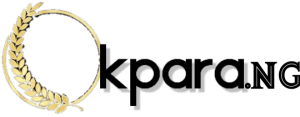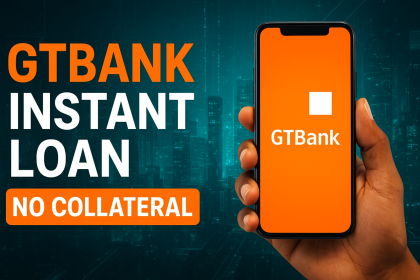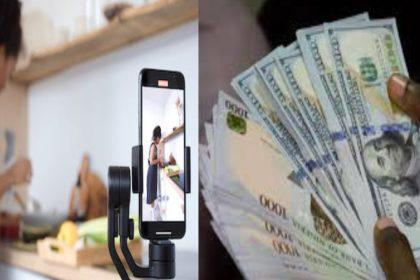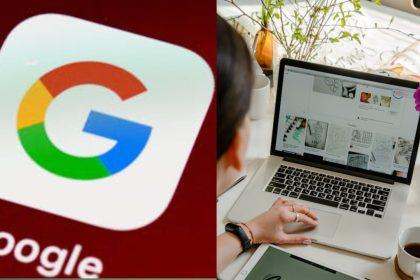How to Apply for Foreign Loans and Grants as a Nigerian Individual, including step-by-step instructions and relevant websites.
How to Apply for Foreign Loans and Grants as a Nigerian Individual
In today’s interconnected world, Nigerians have greater access to international loans and grants. Whether you’re an entrepreneur looking for startup capital, a student aiming for an overseas scholarship, or an individual seeking funding for personal or social projects, there are numerous opportunities available. However, the process of applying for foreign loans and grants can be complex. This guide will help you navigate that journey, from identifying opportunities to making successful applications.
Understanding the Key Differences: Loans vs. Grants
Before diving into the application process, it’s important to know the distinction between loans and grants.
Loans:
- What They Are: Loans are funds that must be repaid, typically with interest. They can come from international banks, financial institutions, or development agencies.
- Examples of Sources: International Finance Corporation (IFC), World Bank, European Investment Bank.
Grants:
- What They Are: Grants are financial awards given for specific projects or purposes (like education, business development, or social initiatives). The best part is that they do not require repayment.
- Examples of Sources: United Nations, Ford Foundation, Bill & Melinda Gates Foundation, etc.
Understanding these terms will guide you in selecting the appropriate type of funding for your needs.
Step 1: Identify Your Purpose and Funding Category
Knowing why you need the funding will determine where and how you apply. Here are some common categories of funding opportunities:
- Education: Funding for tuition, research, and living expenses (scholarships and student loans).
- Business: Capital to start or expand a business (grants or loans for entrepreneurs).
- Agricultural Projects: Funding for farming or agricultural innovation.
- Research & Innovation: Support for scientific, social, or technological research.
- Social Projects: Grants for NGOs or individuals working to improve communities.
Having a clear goal will help you identify the right platforms and opportunities.
Step 2: Research Funding Opportunities
Here are a few trusted sources where Nigerian individuals can find both loans and grants.
Grants for Nigerian Individuals
- United Nations Development Programme (UNDP)
- Offers a variety of funding options for social, educational, and environmental projects.
- Website: www.undp.org
- Ford Foundation
- Provides grants for educational and social projects in various African countries, including Nigeria.
- Website: www.fordfoundation.org
- Tony Elumelu Foundation
- A leading African entrepreneurship development program, offering grants to Nigerian entrepreneurs.
- Website: www.tonyelumelufoundation.org
- African Women Development Fund (AWDF)
- Focuses on funding women-led initiatives, especially those impacting African communities.
- Website: www.awdf.org
- Global Innovation Fund
- A venture fund offering grants and loans to support social innovations with high potential for impact in developing countries, including Nigeria.
- Website: www.globalinnovation.fund
- Mastercard Foundation
- Offers grants and educational opportunities to help Africans unlock their potential.
- Website: www.mastercardfoundation.org
- USADF (U.S. African Development Foundation)
- Provides grants to small businesses, cooperatives, and non-profit organizations in Africa, including Nigeria.
- Website: www.usadf.gov
Loans for Nigerian Individuals
- International Finance Corporation (IFC)
- Offers funding to Nigerian businesses and entrepreneurs, particularly those with potential for growth.
- Website: www.ifc.org
- European Investment Bank
- Provides financing for small and medium-sized enterprises (SMEs) in Africa, including Nigeria.
- Website: www.eib.org
- MicroLoan Foundation
- Provides microloans to women and entrepreneurs in sub-Saharan Africa.
- Website: www.microloanfoundation.org
- World Bank Group (SME Financing)
- Offers financial products for the development of small and medium-sized enterprises (SMEs) in Nigeria.
- Website: www.worldbank.org
Step 3: Understand the Eligibility Criteria
Before applying for any loan or grant, you must understand the eligibility requirements. Each funding body will have its own criteria, but some common factors to check include:
- Country eligibility: Make sure Nigeria is included in the list of eligible countries.
- Sector: Some grants and loans are specific to certain sectors, like education, healthcare, or agriculture.
- Application limits: Some grants are for individuals, while others may require group or business applications.
- Age and background: Some programs are only available to specific age groups (e.g., youth or women) or applicants with certain qualifications.
Step 4: Prepare Required Documents
Each application will require specific documentation, but some common documents needed for most grants and loans include:
- Identification: Passport, National Identification Number (NIN), or any other government-issued ID.
- Proof of Residence: Utility bills, lease agreements, or a national address proof.
- CV/Resume: Your personal or business profile, especially for entrepreneurial funding.
- Project Proposal: Detailed description of your project or business, including goals, methodology, and expected impact.
- Bank Statements: Particularly for business loans, showing your financial stability or business history.
- Educational Documents: For scholarships or educational loans, transcripts, and letters of admission are necessary.
- Reference Letters: Letters from professionals or community leaders vouching for your credibility or the value of your project.
Ensure you have all your documents in PDF format and no larger than 10MB to avoid upload issues.
Step 5: Apply Online
Most foreign loans and grants can be applied for online through the respective funding organization’s website.
How to Apply Online:
- Create an Account: Visit the funding body’s website and create an account. Make sure to note down your login credentials.
- Fill the Application Form: Answer all questions carefully, providing accurate and concise information.
- Attach Documents: Upload all the required documents in the correct format. Double-check for any missing items.
- Review and Submit: Carefully review your application. Ensure there are no mistakes or missing details.
- Confirmation Email: After submission, you will usually receive a confirmation email. Keep this email safe for future reference.
Step 6: Follow Up
After applying, it’s essential to follow up regularly. Some grants may take several months to process.
- Check Your Email: Many organizations send updates via email, so check your inbox and spam folder.
- Check Your Application Status: Some funding bodies provide an online portal to track your application status.
- Prepare for Interviews: If your application is shortlisted, you may be asked to provide further details or attend an online interview.
If you don’t get a response within the specified timeline, feel free to contact the organization for an update.
Step 7: Beware of Scams
Unfortunately, the popularity of foreign loans and grants also attracts scammers. Be cautious and avoid:
- Paying application fees for grants. Legitimate grants will never ask for money upfront.
- Third-party agencies that offer to “guarantee” funding in exchange for a fee.
- Fake websites that mimic official institutions—always ensure the website is genuine (look for “.gov” or “.org” domain extensions).
For added security, always verify the legitimacy of the program through trusted funding aggregators like:
Conclusion
Applying for foreign loans and grants as a Nigerian individual can open doors to international funding, whether for business, education, or community projects. By following the right steps, staying informed, and being diligent with your applications, you can increase your chances of securing the funds you need. Remember, persistence and patience are key, as many applications require time to process and evaluate.
For those looking for further opportunities, keep an eye on funding aggregator websites and government platforms to stay updated on the latest available grants and loans.



